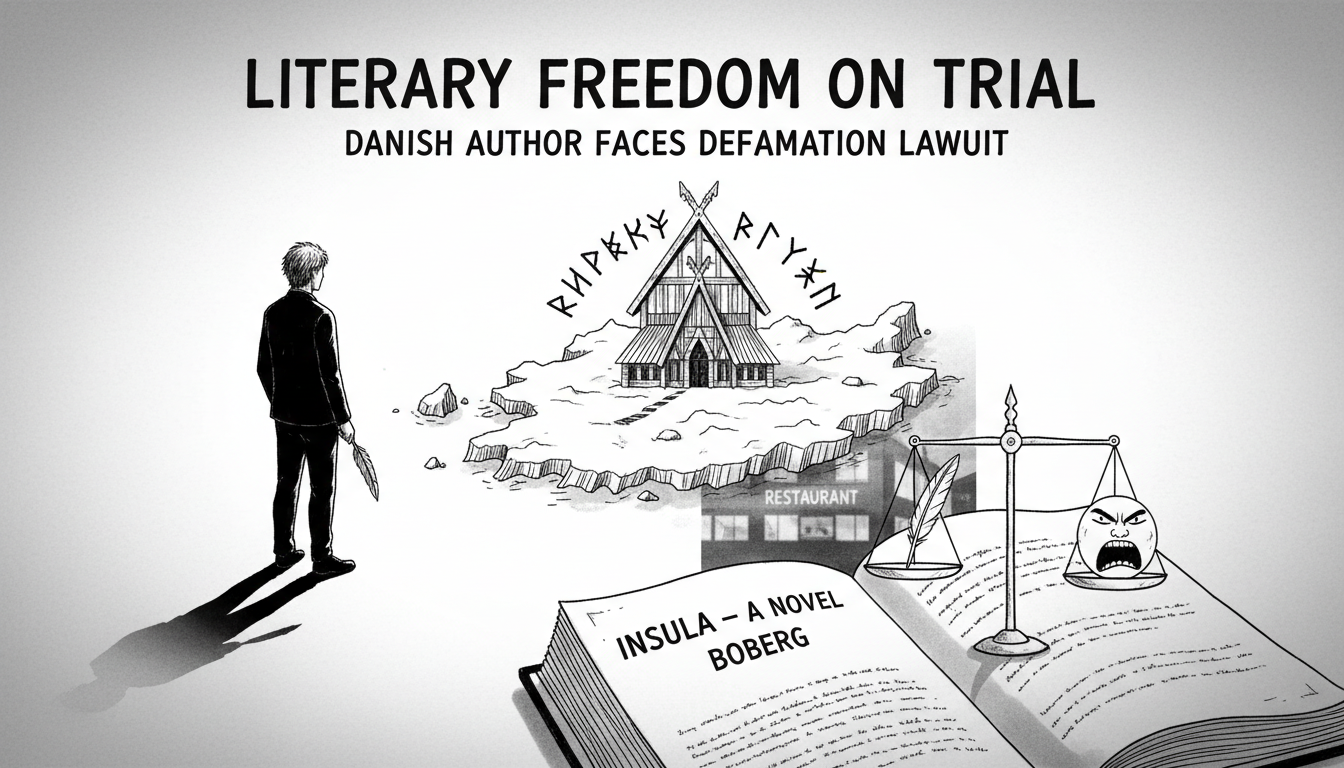A Danish novelist finds himself at the center of a legal battle that questions the boundaries between fiction and reality. Author Thomas Boberg and his publisher Gyldendal face defamation charges from restaurateur Frank Strathe over characters in the acclaimed novel 'Insula'.
The controversy began when Boberg published his novel about a fictional character named 'Thomas' living on a fictional island. The story draws inspiration from the author's own experiences on Fejø, a small island near Lolland. Residents quickly noticed similarities between fictional characters and real people living on the island.
Frank Strathe has taken the most decisive action. He demands compensation of 90,000 Danish kroner and wants the book withdrawn from publication. The restaurateur claims the character 'Rolf' in the novel represents him without consent.
Strathe operates Restaurant Strathenborg and owns an Aston Martin. In Boberg's novel, 'Rolf' runs Restaurant Knautenburg and drives a Lamborghini. The plaintiff argues these parallels create undeniable identification.
The legal dispute reached its conclusion in Nykøbing Falster Court this week. Both sides presented their final arguments in a case that could set important precedents for literary freedom in Denmark.
Strathe remains firm in his position. He stated he wants public acknowledgment that Boberg's writing contains falsehoods. The restaurateur has declined media appearances despite growing attention to the case.
Gyldendal's publishing director Simon Pasternak expresses deep concern about the lawsuit's potential impact. He warns that limiting authors' ability to draw from real-life experiences could impoverish Danish literature.
Pasternak points to literary classics like Tove Ditlevsen's 'Gift' and Suzanne Brøgger's works as examples of fiction that successfully incorporated real experiences. He emphasizes that 'Insula' remains clearly labeled as fiction throughout.
The publisher notes that 'Rolf' appears only briefly in the 255-page novel. Yet Strathe maintains that beyond the criminal elements added for dramatic effect, the character's depiction matches his reality too closely.
This case raises fundamental questions about creative freedom in Scandinavian literature. Danish defamation laws protect individuals from false representations, but the application to fictional works remains complex.
The timing coincides with ongoing debates across Nordic countries about artistic expression limits. Similar cases have emerged in Sweden and Norway, though none have reached this level of legal confrontation.
Legal experts suggest the outcome could influence how Nordic authors approach autobiographical fiction. The verdict may clarify how much transformation real experiences require before becoming protected artistic expression.
Boberg has maintained his position on social media, framing the case as a matter of principle about writers' rights to creative freedom. He believes ethical considerations should remain the author's responsibility rather than a legal matter.
The court will deliver its verdict on December 19th. The decision could resonate throughout the Nordic literary community, potentially affecting how publishers assess manuscripts with real-life inspirations.
International observers watch closely as Denmark navigates this intersection of personal rights and artistic expression. The case exemplifies tensions emerging globally as personal and public boundaries shift in the digital age.

